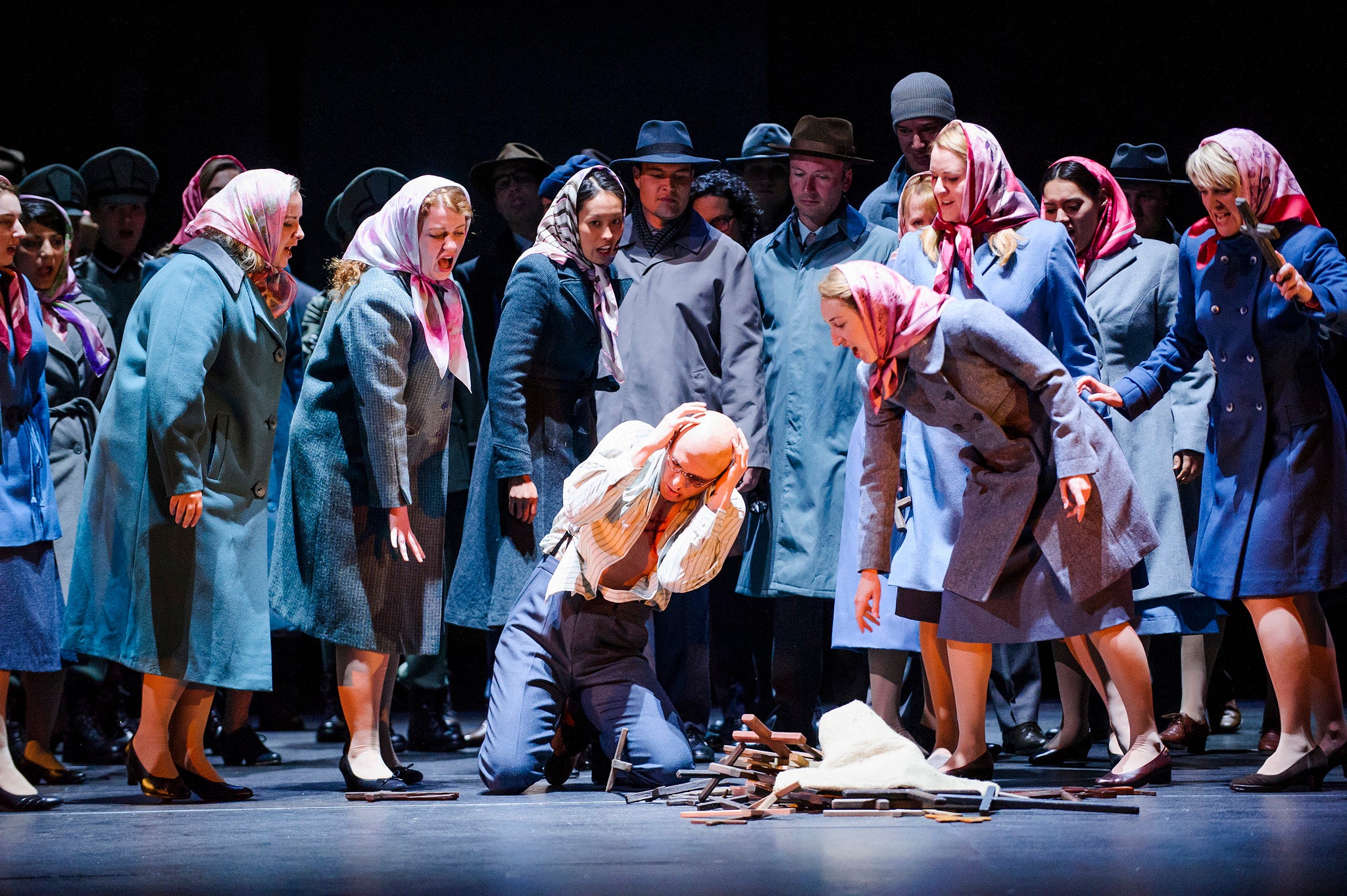Poliuto, Glyndebourne, review: Where the production fails as a drama it triumphs musically
The singing is world class

Your support helps us to tell the story
From reproductive rights to climate change to Big Tech, The Independent is on the ground when the story is developing. Whether it's investigating the financials of Elon Musk's pro-Trump PAC or producing our latest documentary, 'The A Word', which shines a light on the American women fighting for reproductive rights, we know how important it is to parse out the facts from the messaging.
At such a critical moment in US history, we need reporters on the ground. Your donation allows us to keep sending journalists to speak to both sides of the story.
The Independent is trusted by Americans across the entire political spectrum. And unlike many other quality news outlets, we choose not to lock Americans out of our reporting and analysis with paywalls. We believe quality journalism should be available to everyone, paid for by those who can afford it.
Your support makes all the difference.It was a bold move for Glyndebourne to launch its new season with the British premiere of a Donizetti opera written 167 years ago, though, as director Mariame Clement rightly observes, Poliuto does have potential contemporary resonance.
Set in Rome-colonised Armenia in AD 257, it portrays a society where converts to Christianity are put to the sword, and focuses on the heroism of Armenian nobleman Poliuto and that of his wife Paolina who chooses to follow him to execution.
Clement sees echoes of besieged Sarajevo here, with fear ruling the streets, and she’s opted for a stylised, circa-2000 setting with graceful lighting designs by Bernd Purkrabek, but there’s more than a hint of G&S in the way her immaculately-garbed mob, with its twee little pennants, comports itself. She’s also seriously constrained by the fact that the thin plot has no characterisation: the entire raison d’etre of this work lies in its music which emerges, under Enrique Mazzola’s baton, as prophetically Verdian both in style and quality.
And the singing is world-class. Matthew Rose’s High Priest and Emanuele D’Aguanno’s Christian leader are vividly drawn, while the central love-triangle carries huge power thanks to three unforgettable vocal performances: Igor Golovatenko’s brooding and thunderous Severo, Ana Maria Martinez’s exquisitely sung Paolina, and Michael Fabiano’s transcendent delivery of the title role. If only they had been given real characters to inhabit.
Join our commenting forum
Join thought-provoking conversations, follow other Independent readers and see their replies
Comments